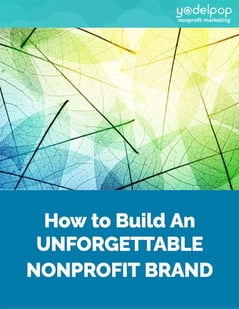How to Build an Unforgettable Nonprofit Brand
 Today's brand paradigm is about organizations and firms communicating the substance of an organization and building a shared sense of trust, purpose and value across all stakeholders.
Today's brand paradigm is about organizations and firms communicating the substance of an organization and building a shared sense of trust, purpose and value across all stakeholders.
That’s a big job for a brand—and for any communications leaders charged with developing, updating and protecting a brand identity.
Fortunately, a framework and a suite of tools exist to help you build an unforgettable nonprofit brand.
In this guide, you'll learn:
- Why it's important to start with a solid brand before embarking on a marketing plan
- The Nonprofit Brand IDEA Framework
- The elements that make up a strong nonprofit brand platform
Get instant access to the free PDF by filling out the form.